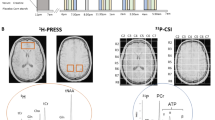Abstract
The results of Tschöp et al.1 on the lack of effect of peripheral administration of PYY3–36 on food intake in rodents are at odds with both the published literature2,3,4,5,6,7,8 (our Table 1) and with earlier data generated by the Tschöp laboratory.
This is a preview of subscription content, access via your institution
Access options
Subscribe to this journal
Receive 51 print issues and online access
$199.00 per year
only $3.90 per issue
Buy this article
- Purchase on Springer Link
- Instant access to full article PDF
Prices may be subject to local taxes which are calculated during checkout
Similar content being viewed by others
References
Tschöp, M. et al. Nature doi:10.1038/nature02665 (2004).
Asakawa, A. et al. Gut 52, 947–952 (2003).
Challis, B. G. et al. Proc. Natl Acad. Sci. USA 101, 4695–4700 (2004).
Challis, B. G. et al. Biochem. Biophys. Res. Commun. 311, 915–919 (2003).
Halatchev, I. G., Ellacott, K. L., Fan, W. & Cone, R. D. Endocrinology 145, 2585–2590 (2004).
Nordheim, U. & Hofbauer, K. G. Am. J. Physiol. Regul. Integr. Comp. Physiol. 286, R138–R142 (2004).
Pittner, R. A. et al. Int. J. Obes. advance online publication, 15 June 2004 (doi:10.1038/sj.ijo.0802696).
Martin, N. M. et al. Int. J. Obes. advance online publication, 18 May 2004 (doi:10.1038/sj.ijo.0802646).
Batterham, R. L. et al. Nature 418, 650–654 (2002).
Batterham, R. L. et al. N. Engl. J. Med. 349, 941–948 (2003).
Author information
Authors and Affiliations
Corresponding author
Ethics declarations
Competing interests
R.L.B., M.A.C., C.J.S., M.A.G. and S.R.B. have a financial interest in technology licensed to Thiakis, a company that may have a commercial interest in the results of this research and technology. M.A.C. has a significant financial interest in Orexigen Therapeutics, a company that may have a commercial interest in the results of this research and technology. This potential conflict of interest has been reviewed and managed by the OHSU Conflict of Interest in Research Committee. R.D.C. is a significant shareholder in Neurocrine Biosciences, chief scientific officer of and a significant shareholder in Znomics, and a co-inventor on patents dealing with PYY, licensed to Orexigen and other biotechnology companies. H.H., M.A.C., C.L.D., A.M.W., A.E.B. and M.J.L. have no conflicts of interest.
Rights and permissions
About this article
Cite this article
Batterham, R., Cowley, M., Small, C. et al. Does gut hormone PYY3–36 decrease food intake in rodents? (reply). Nature 430, 3–4 (2004). https://doi.org/10.1038/nature02666
Published:
Issue Date:
DOI: https://doi.org/10.1038/nature02666
This article is cited by
-
Mechanisms underlying the weight loss effects of RYGB and SG: similar, yet different
Journal of Endocrinological Investigation (2019)
-
Relative Effects of Sensory Modalities and Importance of Fatty Acid Sensitivity on Fat Perception in a Real Food Model
Chemosensory Perception (2016)
-
Common neuropeptide Y2 receptor gene variant is protective against obesity among Swedish men
International Journal of Obesity (2006)
Comments
By submitting a comment you agree to abide by our Terms and Community Guidelines. If you find something abusive or that does not comply with our terms or guidelines please flag it as inappropriate.



